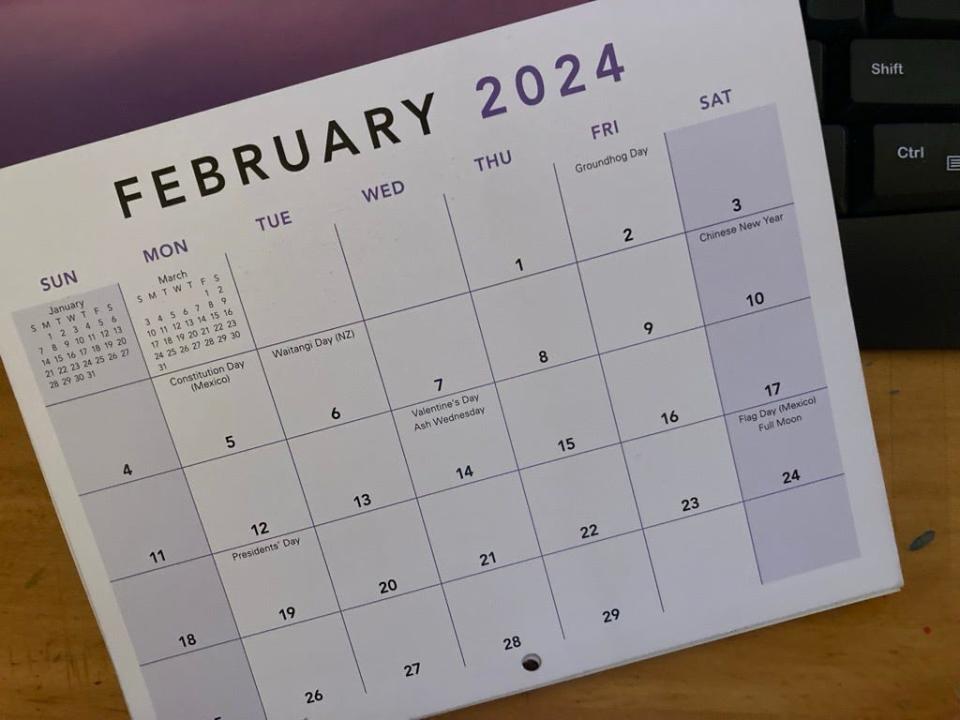2024 is a Leap Year, but what does that mean? Here's the story behind Feb. 29
February 29 only comes around once every four years, but does anyone really know why?
This year we have the privilege of 366 days, but what's the story behind Leap Day?
What is Leap Day?
Leap Day is the extra day we get every four years on Feb. 29.
During Leap Years, there are 366 days in the calendar cycle as opposed to 365, with the extra day tacked onto February, the shortest month.
Why do we have Leap Day?
The Leap Year rules were originated in the Julian Calendar, established in 46 BC by Julius Caeser, but the system wasn't perfect.
Leap day exists to even out time discrepancies between the calendar year and the solar year. While it's widely accepted that a calendar year has 365 days, it takes Earth about 365.242 days to orbit the sun.
The Julian Calendar rounded this number up to 365.25 days.
To avoid any major changes or regressions in the relationship between the calendar dates and the seasons, Leap Days were added every four years to even out the cycle.
However, the inaccuracy in averaging the orbital years caused regressions anyway, and the calendar dates and seasons ended up off-kilter by about one day per century.
What are Leap Year exemptions?

During Pope Gregory XIII's rule, the Gregorian Calendar was put into effect to essentially recalibrate the calendar and astronomical years, based on the March 21 vernal equinox.
In 1582 the calendar saw a 10-day jump, going from Oct. 4 to the next date being ruled Oct. 15 to reset the regressions caused by the previous Julian Calendar.
When was the last time we skipped a Leap Day?
Leap Years still occur every four years in the Gregorian Calendar, which is widely practiced now, but Pope Gregory instilled various exemptions to the rule to avoid any further disparities.
For example, any year that is evenly divisible by 4,000 is automatically a common year, and century years are only considered leap years if they can be evenly divided by 400.
Therefore, the next time we skip a leap day will be in the year 2100. And the last time — the year 1900.
Kaitlyn McCormick writes about trending issues and community news across South Jersey for the Courier-Post, The Daily Journal and the Burlington County Times. If you have a story she should tell, email her at kmccormick@gannett.com. And subscribe to stay up to date on the news you need.
More: The holiday season has passed, but what other big dates are on the calendar?
More: Space meant to hold Moorestown Mall’s gaming, entertainment venue soon to be vacated
More: Now you can cruise alongside the battleship during its historic dry dock departure
This article originally appeared on Cherry Hill Courier-Post: What is Leap Year? And why do we have Leap Days? What you should know

